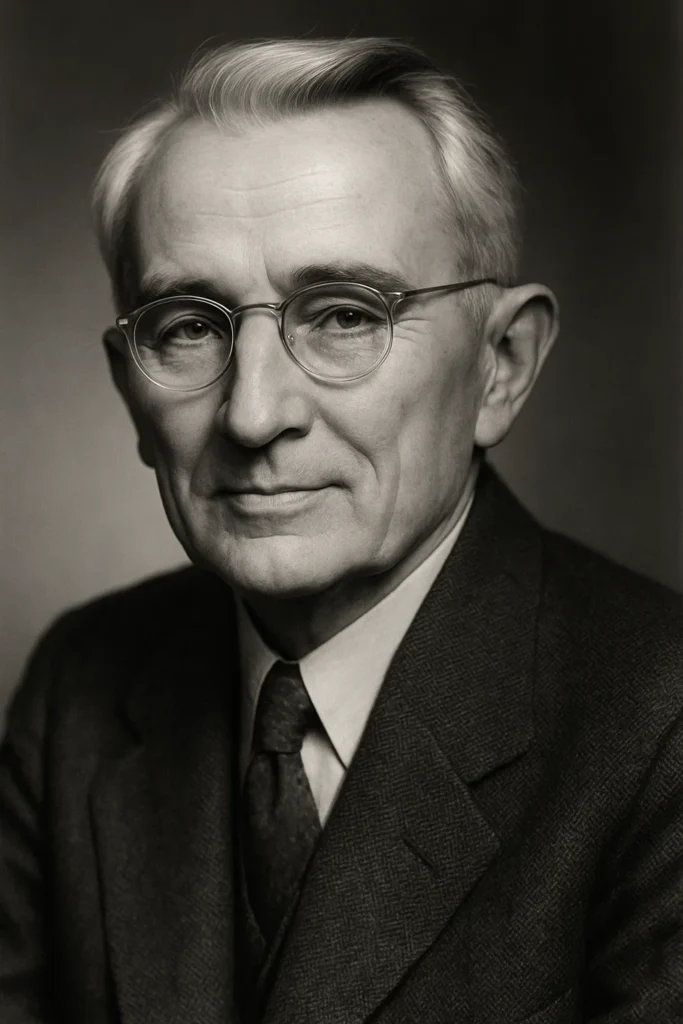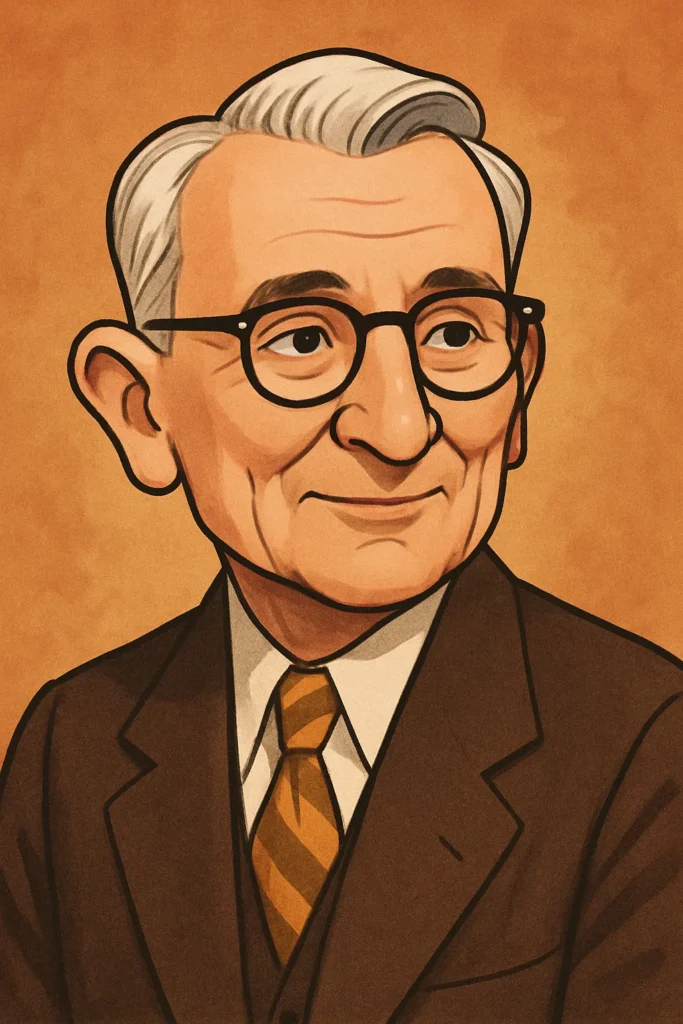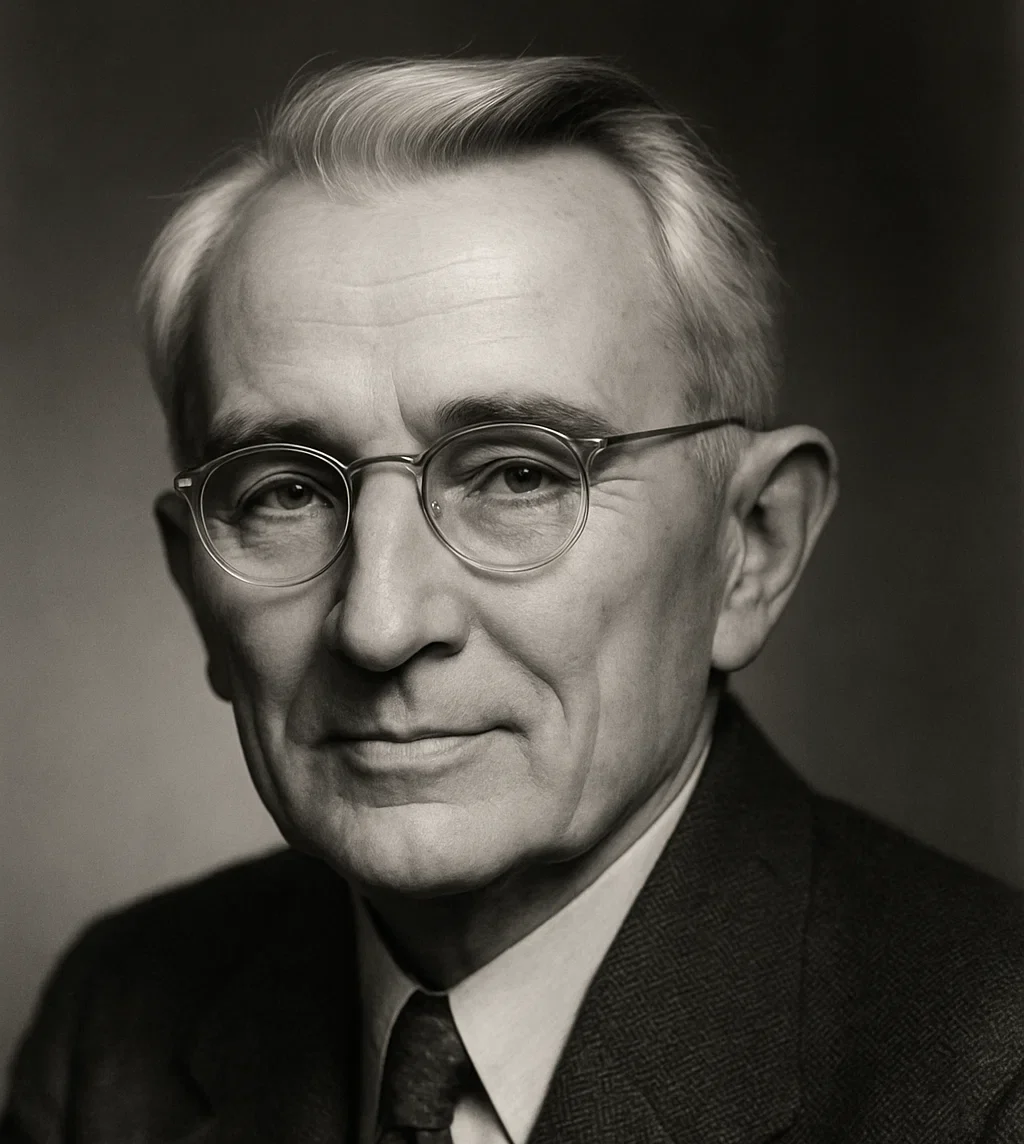How a Farm Boy Became a Global Voice of Encouragement
When we hear the name Dale Carnegie, we often think of timeless wisdom, personal development, and the best-selling book How to Win Friends and Influence People. But behind the fame was a man who knew hardship intimately—someone who transformed struggle into strength and setbacks into stepping stones.

Humble Beginnings on a Missouri Farm
Born in 1888 in Maryville, Missouri, Dale Carnegie grew up in poverty. His family worked long hours on a small farm, and Dale would rise at 3 a.m. each morning to milk cows before going to school. Money was tight, and Carnegie wore second-hand clothes while dreaming of a brighter future.
Finding His Voice in the Classroom
Though shy and not physically imposing, Carnegie discovered a love for public speaking in high school and college. At Warrensburg State Teachers College, he joined the debating team, where he found that words—well-crafted and passionately spoken—could open doors.
But success didn’t come quickly. After graduation, he held various sales jobs, struggling to make ends meet. At one point, living in New York City, he was so broke that he rented a small room at the YMCA, eating cheap meals and wondering if he’d made a mistake.
Turning Rock Bottom into a Platform
In a moment of boldness, Dale asked the YMCA if he could teach a class on public speaking. They agreed. To his surprise, people showed up—and kept coming back. Carnegie wasn’t teaching theory; he was sharing tools that real people could use to become more confident and persuasive.
This class changed his life. It sparked a new path as a lecturer, coach, and eventually, an author. He compiled his lessons, stories, and observations into a book that would reshape the world of personal development.

A Bestseller Born from Struggle
In 1936, he released How to Win Friends and Influence People. It became a runaway success, selling over 15 million copies in his lifetime and influencing generations of leaders, entrepreneurs, and everyday people looking to connect more deeply with others.
What made Carnegie’s approach different? He didn’t believe in manipulation. His message was simple: people matter. Learn their names. Show sincere interest. Listen more than you speak. Encourage others. These principles weren’t just techniques—they were reflections of a man who had learned, through hardship, the value of kindness, effort, and resilience.
Legacy of a Lifelong Learner
Dale Carnegie continued to speak and write until his death in 1955. Today, Dale Carnegie Training programs are offered in over 90 countries, helping millions improve their communication, leadership, and confidence.
His journey—from a cow-milking farm boy to a global thought leader—is a powerful reminder that success isn’t reserved for the lucky. It’s earned by those who are willing to rise early, stay humble, and never stop growing.
Final Thought
“Develop success from failures. Discouragement and failure are two of the surest stepping stones to success.”
— Dale Carnegie
Dale Carnegie didn’t have it easy. He didn’t come from wealth or privilege. What he had was the tenacity to keep going, the humility to keep learning, and the heart to help others rise with him.
If he could do it, maybe—just maybe—so can we.


Leave a Reply